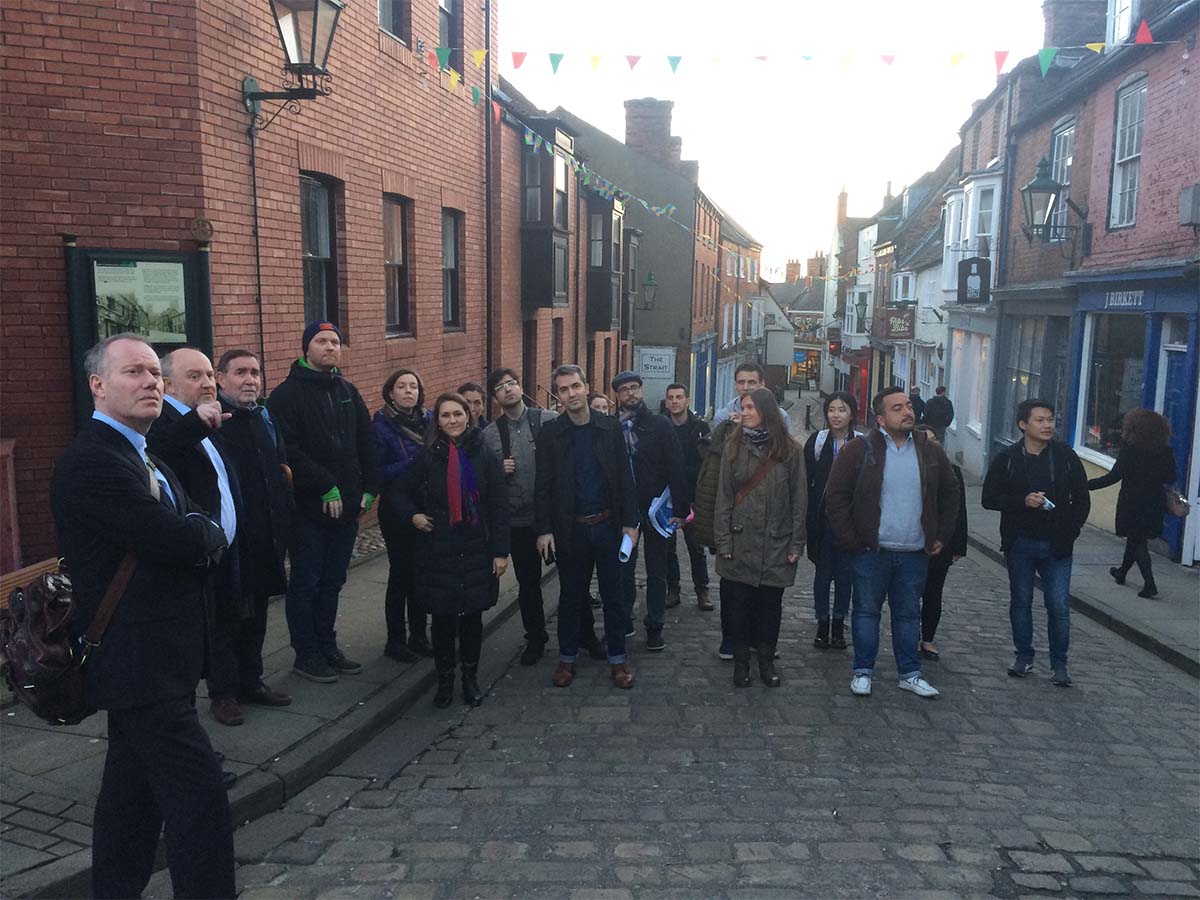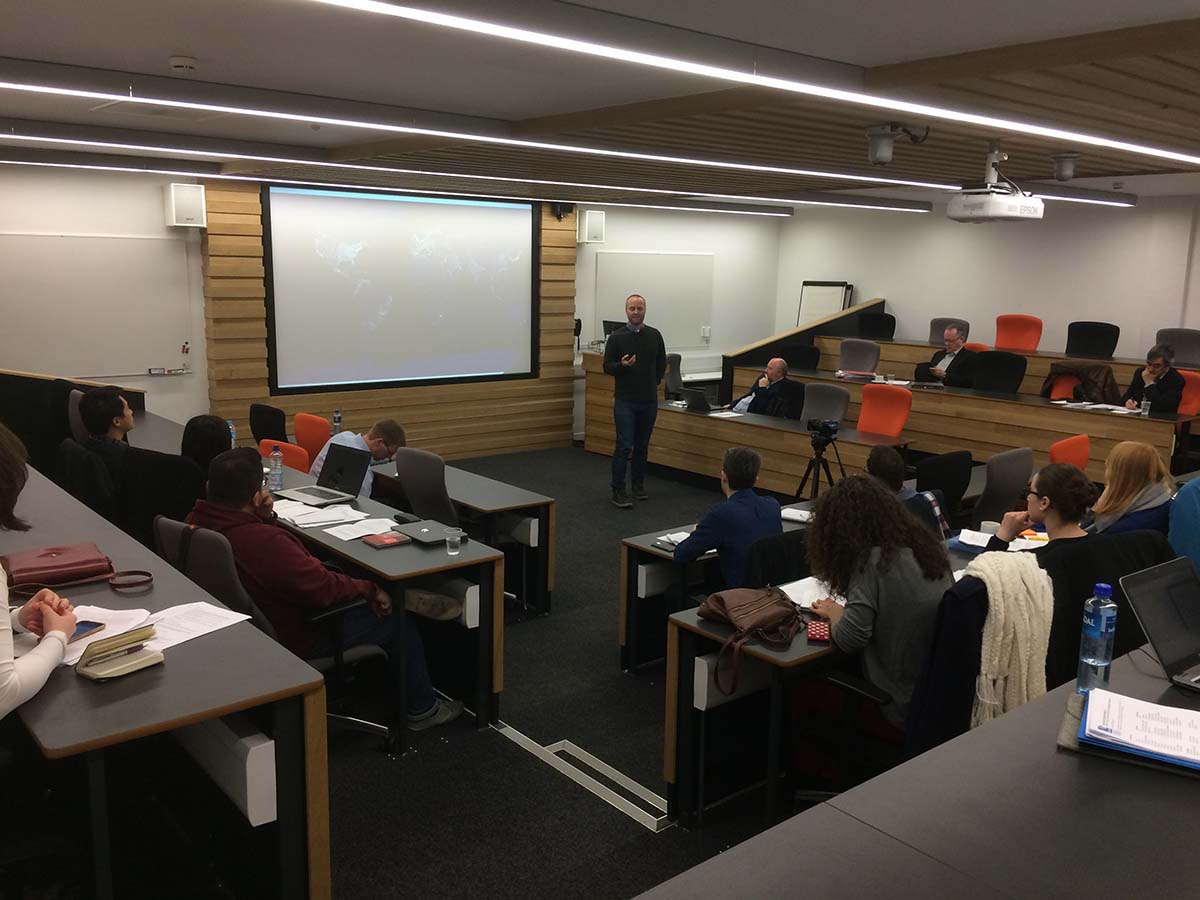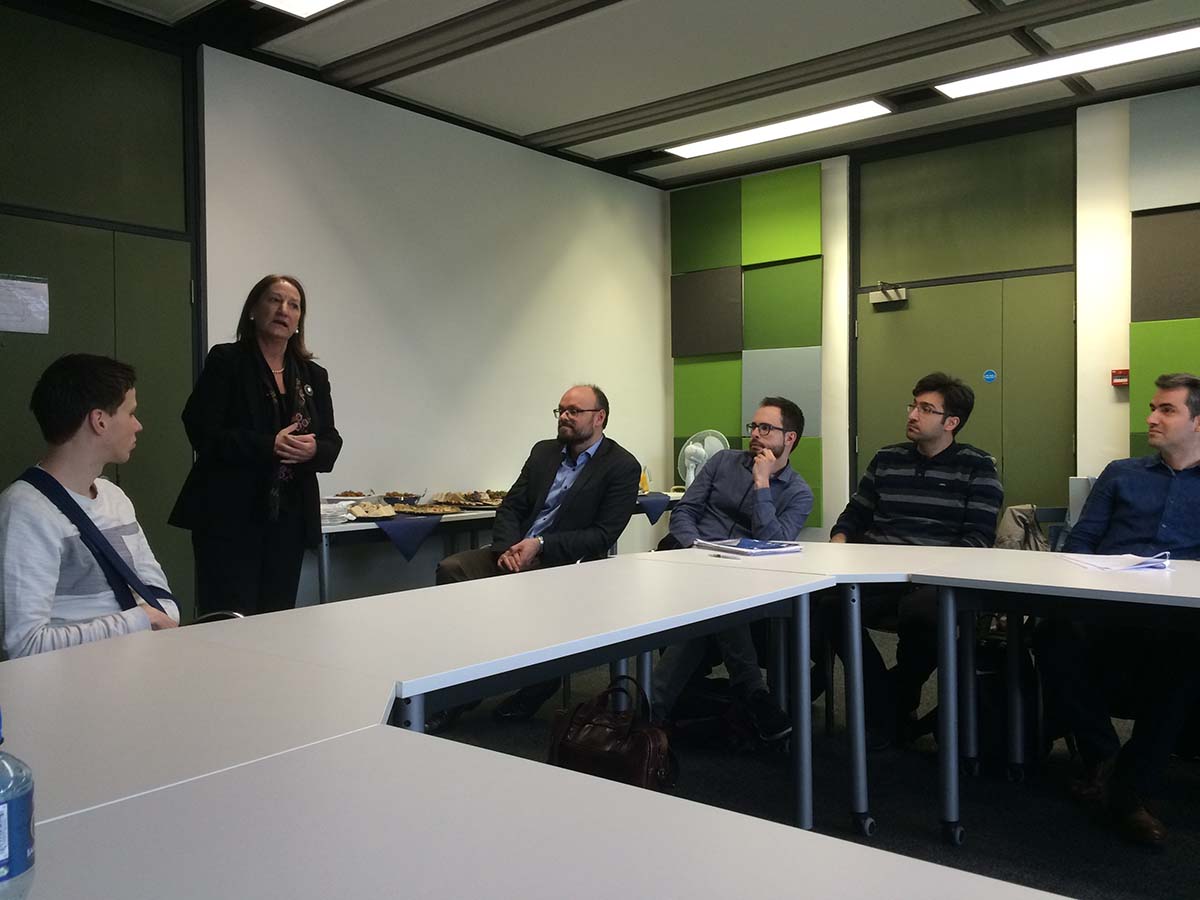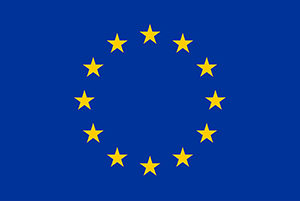The first one in a series of one-week-long training events in RUNIN project was hosted by University of Lincoln (UK) in March 2017. A group of 12 early stage researchers (ESR) from across the world – at the time still missing two members to join the group later – met for the first time in the heart of England. The busy training week was full of lectures, seminars, talks and group work, as well as social activities from an Uphill guided walk tour and dinner in a traditional pub to an entertaining night out at a Japanese Teppanyaki restaurant.

During the week, the supervisors from different RUNIN partner universities, Rune Dahl Fitjar
(Stavanger), Magnus Klofsten (Linköping) and Artur da Rosa Pires (Aveiro), and invited external speakers, Jeremy Howells and Pablo d’Este, gave introductory lectures on universities role in regional development, rural innovation and university-industry linkages. Some of the lectures focused also on the basics of managing a research project and presenting typical research methods in innovation research, such as interviews and case studies. In addition, the network coordinator and project manager from The University of Stavanger gave an overview of the project to the whole team.

As part of the training, the early stage researchers were divided into smaller groups to carry out a little field work during their stay in Lincoln. The small groups of researchers visited the university’s local stakeholders including Siemens, Lincoln County Council and Sparkhouse Incubator.

Each group prepared a presentation based on the conducted interviews to share their findings and thoughts on university’s regional role in Lincoln. The ESRs also had a chance to present the first steps of their individual research projects, to network and meet with work package leaders. This was indeed a valuable part of the training week; enabling the group to discuss their backgrounds, interests and plans for individual research projects may result in sharing data, joint-publications and other collaboration in the long term. It is also worth mentioning that the ESRs already teamed up with their local colleagues to carry out a case study on their home university’s regional role for a joint RUNIN book project!
The intensive training programme was first and foremost a social experience, and actually, the Lincoln International Business School felt a lot quieter after the group had returned to their own universities.


